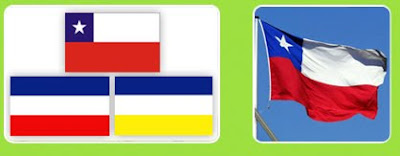UN Assembly spotlights key role of women, youth, civil society in development agenda
6 March 2014 – Equality, inclusiveness and participation must guide the framing of the world agenda for sustainable development, the President of the General Assembly said today, urging Member States to ensure that women, young people and civil society participate fully.
“Inclusion and participation mean our global community grows even stronger,” said President John Ashe, opening the Assembly’s two-day High-level thematic debate on “Contributions of women, the young and civil society to the post-2015 development agenda.”
Setting the stage for a new post-2015 development agenda to succeed the UN Millennium Development Goals (MDGs) has been made by Mr. Ashe the hallmark of his year-long Assembly presidency which ends in September.
The MDGs, agreed by world leaders at a UN summit in 2000, aim to slash extreme hunger and poverty, cut maternal and infant mortality, combat disease and provide access to universal education and health care, all by the end of 2015.
Despite significant progress in some areas, these targets will not be reached in many countries, and they will be incorporated in an even more ambitious post-2015 agenda.
“All groups and all people have a stake in this development agenda and have a right to be included and heard,” he told the meeting, which also heard from Phumzile Mlambo-Ngcuka, Executive Director of UN Women, Anthony Lake, Executive Director of the UN Children’s Fund (UNICEF) and Ahmad Alhendawi, the Secretary-General’s Envoy on Youth.
Paul Quintos, Programme Manager, of IBON International, and other civil society representatives also addressed the meeting.
Mr. Ashe said that if the post-2015 development agenda is to be a shared one, the Member States must welcome contribution from all stakeholders so as to ensure that the process has the greatest buy-in and that there is a broad commitment to equality, inclusiveness and participation.
Turning to the specifics of today’s event, he said that women not only subsidize economies, but they sew the social fabric of their communities together, and are the primary drivers of nutrition, health, education and well-being of future generations.
Mr. Ashe noted that on Saturday the world will mark International Women’s Day, which this year focuses on the theme “Equality for everyone is progress for all.” This is fitting, he said, because, “as a civilization, we will never reach our full potential without realizing the rights – including sexual and reproductive rights – of 50 per cent of our population, and making full use of their talents and skills.”
As for youth, he said that while they are often denied the investments and opportunities to make use of their full potential – whether due to lack of employment and education opportunities, disease burden or child marriage – they are well aware of what they want and need: quality education and healthcare; job opportunities; protection from all forms of abuse; removal of barriers that hinder inclusion and participation; and open and transparent governance.
Mr. Ashe went on to say that in the post-2015 process, the international community will increasingly have to rely on civil society to join in shaping the agenda, setting priorities, monitoring implementation and ensuring transparency and accountability.
“Civil society is absolutely vital in identifying and helping to break down the systemic, policy and programmatic barriers such as unequal or blocked access to development, food, education, clean water, sanitation, energy, healthcare and justice; in preventing violence and gender inequality; and in ensuring freedom of expression and protecting universal human rights,” he said.
Finally, the Assembly President said that all the participants taking part in the event “are part of a great civic movement” that has the power to impact individual lives, communities, social services, the economy and the planet. “As we include and empower more people and groups in this movement, even more people around the world become caretakers of its sustainability. Inclusion and participation mean our global community grows even stronger.”
He said that all groups and all people have a stake in the new development agenda and have a right to be included and heard. “The post-2015 development agenda must embody a profound tenet of our United Nations Charter: that all people have rights and fundamental freedoms. It must reflect the principles of universality and non-discrimination, and enable meaningful participation and accountability.”

Comentarios